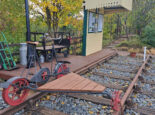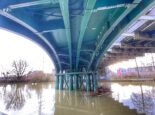Be waste wise

When it comes to disposing of your waste responsibly, the buck stops with you. Beware of unlicensed waste collectors who may simply take your waste and fly-tip it, putting you at risk of prosecution in the process. Amy Nebel, Recycling Contracts Officer at Peterborough City Council, tells us how to steer clear of the rogues
It’s easily done. You’ve got something bulky taking up space in the home or hogging the driveway and you want shot of it. The temptation is to get rid of it as quickly and cheaply as possible – to anyone willing to pick it up and take it out of your life. But could you be unwittingly fueling the rise in flytipping in and around Peterborough? ‘Fly-tipping is on the rise in Peterborough,’ explains the City Council’s Recycling Contracts Office Amy Nebel. ‘Much of it is down to a minority of residents illegally dumping their waste, but a recent phenomenon is the rise of unlicensed waste collectors looking to make easy money.’ Residents need to be cautious and take the proper precautions. ‘These are criminals masquerading as bona fide collectors. They can be very convincing but while you may think they are taking your waste away to be properly handled, there’s every chance it’s being fly-tipped a few miles away. In the meantime they’ve pocketed your money and are free to con the next person.’
Costly blight
We’re gradually getting better at dealing with our waste, with legislation helping to support gains in recycling as landfill becomes more expensive. But ever-more stringent waste disposal requirements may be what’s driving up the increase in fly-tipping. It’s a costly blight; councils across England spend around £50million every year dealing with the problem. ‘In Peterborough alone we have to spend about £250,000 of taxpayers’ money cleaning up illegally dumped waste. This is a significant amount – money that could be better spent providing frontline services such as social care or repairing our roads,’ says Amy. Last year there were more than 9,000 reports of fly-tipping in our area. The fact that the council has to divert considerable resources to dealing with this problem is disappointing, particularly at a time of constrained budgets and austerity. Fly-tipped rubbish also constitutes a health and safety hazard. Pollutants from items such as fridges, paints and even animal carcasses can leach out into the environment, harming wildlife and farm animals as well as creating an obvious eyesore. Locally much of the fly-tipped rubbish comes from the home: mattresses, electrical items and so on, so much of the solution lies with us.
Be wary
The main way we can help to prevent fly-tipping is to be wary of bogus waste collectors, who undercut and compromise genuine waste disposal companies operating within the law. ‘It’s easy to be tempted by a seemingly bargain price. But its essential to do your homework and check whether the person purporting to be a registered waste collector really is,’ explains Amy. ‘The simple way to do this is to ask to see their waste disposal licence. Even if you allow your waste to be taken away in good faith, if it’s later fly-tipped and the waste can be traced back to you it will be you that is liable for prosecution. Old receipts, letters and other documents can serve as evidence and the council has the power to issue fines for owners of fly-tipped waste, with the very worst offences attracting whopping fines of up to £50,000. Ultimately the buck stops with you, so protect yourself and your city by following the SCRAP code.
Follow the SCRAP code
If you’re considering arranging for anyone other than the council to collect your household waste, make sure you follow the SCRAP code:
- SUSPECT. Beware of rogue waste carriers – reputable companies do not usually make direct approaches. If in any doubt as to whether someone is a legitimate waste carrier, do not allow them to take your waste.
- CHECK. Ask for their waste carrier registration details, and verify them by checking the online register or by calling 03708 506506. Note down the registration number of the vehicle used to take your waste away.
- REFUSE unsolicited offers to have any rubbish taken away. Always carry out your own research and choose who you wish to approach.
- ASK QUESTIONS. Always ask what exactly is going to happen to your rubbish and seek evidence that it is going to be disposed of appropriately. A legitimate, professional waste carrier who wants your business should not object to being asked reasonable questions.
- PAPERWORK. Make sure you get a proper receipt containing the written information for your waste (a ‘Duty of care: waste transfer note’). This should include what has been removed and where it will be going. Make sure the company or tradesman’s details are included.
SOURCE: National Fly-Tipping Prevention Group (www.tacklingflytipping.com)n be donated to your local charity shop.
How to report fly-tipping
It’s important to stay safe before taking action against fly-tippers. Remember, some waste can be dangerous, so don’t open any bags, drums or other enclosed containers. Piles of soil may be contaminated or hiding dangerous material. Note down any details if you happen to witness flytipping or come across it, but always put your own safety first. Recorded details can help the council to take action against fly-tippers. If you can, take photos of the waste and make a note of what’s been dumped.
- To report an incident of fly-tipping call 01733 747474 or visit www.peterborough.gov.uk/residents/my-peterborough
- You can also make a report via the My Peterborough app, available for free from either the Apple or Google Play Stores. You can report other issues such as graffiti via the app, which allows you to attach a photo and pinpoint the exact location of the problem. The council will even let you know when the issue has been resolved!
Fly-tipping facts:
- The year 2015/16 saw a 4% rise in fly-tipping.
- Fly-tipping on footpaths, bridleways and highways increased by 8%.
- Just over two thirds of fly-tipped waste comes from households.
- Local authorities carried out close to half a million enforcement actions in 2015/16.
- Clearing fly-tipped waste cost local authorities £49.8m last year.
What you can do with extra waste
If you have waste that won’t fit into your wheelie bin there’s no excuse to let it fester. Dispose of it responsibly by giving it to charity, heading to the Household Recycling Centre or the WEEE Re-Use Facility, or by simply arranging for it to be collected
Give it away
If the item still has some useful life left in it, why not donate it to charity? Take it down to your local charity shop or use one of the charity bags posted through your letterbox. Or go online to offer it on a reuse and recycling site, such as Freecycle or Freegle.
Household Recycling Centre
Situated on Welland Road in Dogsthorpe, the Household Recycling Centre aims to recycle as much of the household waste that’s taken there as possible. You may be surprised by what can be recycled – kitchen appliances, engine oil, paint – there’s a safe and efficient way for just about anything to be disposed of. Check the website for a full list of what’s accepted. If you will be using a van or trailer to transport your waste please be aware that you will need to apply for a permit. This is to prevent the Household Recycling Centre from being used for commercial waste. The centre sometimes closes at short notice in poor weather, so check ahead if its been snowing, for example.
WEEE Re-Use Facility
WEEE is short for ‘Waste Electrical and Electronic Equipment’. The WEEE Re-Use Facility in Fengate exists to turn back the time on unloved electrical items so that they can be used once more. All white goods, large and small, are accepted and will be reprocessed and reconditioned by engineers to be sold by local charities and community groups looking to raise vital funds. Some electronic items are also made available to people on low incomes or benefits. As well as white goods, the WEEE Re-Use Facility welcomes TVs, hoovers, lamps and just about any other electrical item that will benefit others after it’s been given a new lease of life.
Collection from your home
Not everyone has time to visit the Recycling Centre or Re-Use Facility. If that’s you, why not arrange for the council’s waste partner Amey to come and collect your additional waste? Useable small items are often collected for free and then donated to local charity Sense, which supports people who are deafblind, have sensory impairments or complex needs. Clothes, towels, books, toys and CDs are all suitable for donation, as well as paintings and smaller electrical items such as radios and hair dryers. Bulky waste items are charged at £23.50 per collection. You can dispose of several items in one collection, so it actually makes for a very cost-effective way to rid yourself of that old bed or defunct cooker. Much of the material will then be recycled, so you’ll be doing your bit for the environment too. A few items are quoted on an individual basis. Check the website for all the details.
Contacts
● Household Recycling Centre, Welland Road, Dogsthorpe, Peterborough PE1 3TD. 01733 747474, peterborough.gov.uk/residents/rubbish-and-recycling/Household-Recycling-Centre
- WEEE Re-Use Facility: Fengate, Peterborough PE1 5XG. 01733 425450, peterborough.gov.uk/residents/rubbish-and-recycling
- Small and bulky items collection Visit the council offices at Bayard Place, Broadway, Peterborough PE1 1FZ. Or call 01733 747474 or visit peterborough.gov.uk/residents/rubbish-and-recycling/otherwaste-collections















